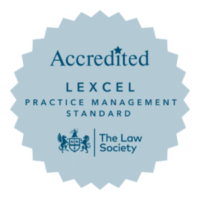Wills: Aretha Franklin – Make a Will to R.E.S.P.E.C.T your future wishes
04th Oct 2023
In recent weeks, like me, you may have noticed the renewed press coverage regarding the estate of the late Aretha Franklin. When Aretha Franklin passed away in 2018, initially, her family thought she had died without a Will. However, several months later, following a further search of Aretha’s residence in Michigan, USA, a family member located two handwritten documents. The first in a locked cabinet, dated June 2010. The second in a spiral notebook, wedged between sofa cushions, dated March 2014.
Aretha’s two handwritten notes of her wishes caused problems for her family
What then ensued was a lengthy legal case to prove which document constituted Aretha’s last Will under Michigan Law. At the centre of the case were the significant differences as to the distribution of Aretha’s estate. The earlier document divided Aretha’s estate equally between Aretha’s four children. The latter named Aretha’s children and certain grandchildren as beneficiaries, with specific gifts of property, bank funds and Aretha’s royalties.
Recently the Probate Court in Michigan ruled that the document dated March 2014 represented Aretha’s valid final wishes. Although the Law in Michigan, US, differs to that of the UK, the above does highlight some important parallels. Firstly, the importance of making a Will to ensure your future wishes are legally fulfilled after your death. Secondly, that your Will is drafted and signed correctly, to ensure there are no misconceptions. Failure to do so can result in a lengthy legal dispute and associated costs, with inevitable stress and upset for those concerned.
When is a Will not a Will?
In England and Wales the Wills Act 1837 is the legal starting point in determining what constitutes a valid document. The Act includes specific legislation on how the Will is prepared, signed and witnessed. Additionally, that an individual must have the requisite capacity and must be making their Will without duress or undue influence.
It is essential to ensure that your Will is drafted and executed (signed) correctly. Failure to do so could result in a lengthy legal dispute, as was the case with Aretha’s Will.
Does marriage/civil partnership and divorce affect your Will?
- A Will is automatically revoked by marriage or civil partnership, unless specifically drafted in “contemplation of”.
- Divorce does not revoke a Will entirely, but for inheritance purpose, your ex-spouse is treated as having died before you, as at the date your marriage or civil partnership was dissolved.
What happens if you die without a valid Will?
In England and Wales if you die without a valid Will, division of your estate is governed by the Administration of Estates Act 1925. Under this Act certain categories of relation inherit in order of set priority. Often, the intestacy provisions are different to an individual’s real life circumstances. For example, there is no provisions for un-married couples or those not in a civil partnership, often referred to as “common law partners”.
The reassurance of professionally drafted Wills
At Thatcher + Hallam LLP we pride ourselves in ensuring our Will service is tailored to you. Meeting with you to guide you through the whole process and preparing your Will to m specific needs and wishes. Once you are happy with the draft, we can meet with you to ensure that the document is signed and witnessed correctly. We can then arrange storage of your original Will in safe custody on your behalf.
We also have an experienced team of expert lawyers that specialise in advising clients on contested Wills, trust and inheritance claims.
For further information or to arrange an appointment to make or review/update an existing Will please contact our Wills, Probate & Tax Planning Team by calling on 01761 414 646, emailing us on enquiries@th-law.co.uk or contacting us through our website.
Related news
Articles you may find useful
Like this article? Sign up for our regular newsletters






